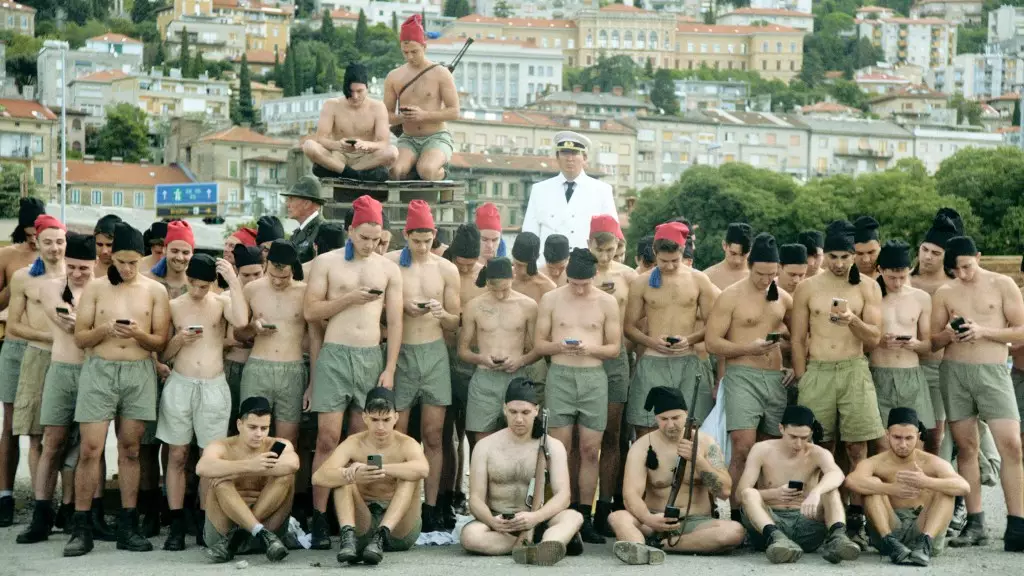In the realm of documentary filmmaking, few projects manage to elicit profound reflections on history and identity as effectively as Igor Bezinović’s ‘Fiume o Morte!’. This compelling documentary recently captured the prestigious Tiger Award at the International Film Festival Rotterdam (IFFR), alongside the FIPRESCI Award, underscoring its impact and significance in contemporary cinema. At the heart of the film lies Gabriele D’Annunzio, a polarizing figure whose life and actions continue to resonate in discussions surrounding nationalism and cultural identity post-World War I.
The documentary delves into D’Annunzio’s controversial attempt to seize Fiume, a city now known as Rijeka in Croatia, in response to the outcome of the Paris Peace Conference that controversially earmarked the city for Yugoslav governance. The film artfully constructs a narrative that is as much about D’Annunzio’s personal vendettas as it is about the broader socio-political upheavals in early 20th-century Europe. This intersecting exploration not only paints an intimate portrait of D’Annunzio but also reflects on the ramifications of his actions on subsequent generations, illustrating the perennial nature of historical narratives shaped by individual ambitions and nationalistic fervor.
Bezinović’s film transcends the traditional boundaries of documentary by blending dramatic re-enactments with documentary techniques to create a textured narrative tapestry. By invoking both historical imagery and modern-day interpretations, ‘Fiume o Morte!’ invites audiences to reconsider the boundaries of truth in film and the dynamic ways that history can be revisited. This stylistic approach is particularly relevant in the contemporary context where the resurgence of nationalist sentiments across Europe raises echoes of D’Annunzio’s philosophy.
The deliberations of the Tiger Competition Jury reflect a keen awareness of the societal implications surrounding the film. Their choice underscores the relevance of D’Annunzio’s legacy, drawing parallels between the past and present when confronting the rise of ultra-nationalism in Europe. The jury described the film as utilizing public spaces and historical figures as co-conspirators in the exploration of European identity, demonstrating how contemporary socio-political realities can be informed by historical legacies.
While ‘Fiume o Morte!’ garnered significant accolades, the IFFR platform also spotlighted other noteworthy works that reflect diverse cultural narratives. For instance, Sammy Baloji’s film essay ‘L’arbre de l’authenticité’ offers a poignant critique of the colonial past of the Democratic Republic of Congo, intertwining ecological themes with a critique of historical injustices. His work serves not only as a documentary but as a call to action regarding environmental preservation and the socio-political context that governs it.
Tim Ellrich’s ‘Im Haus meiner Eltern’, which received one of the Tiger Special Jury Awards, presents an intimate narrative that bridges personal and collective experiences. The film’s exploration of the struggles faced by a therapist managing her familial obligations against the backdrop of her professional life resonates widely, speaking to a universal audience about the complexities of managing personal relationships amidst broader societal demands.
The festival also acknowledged Varsha Bharath’s vibrant coming-of-age story ‘Bad Girl’, which received the NETPAC Award for best feature film from the Asia and Pacific regions. This narrative, focused on a rebellious teenager navigating the restrictions imposed by her affluent family, reflects a growing interest in voices that engage with the intricacies of adolescence and the socio-cultural dynamics at play in modern Indian society.
As ‘Fiume o Morte!’ and its contemporaries gain recognition, the IFFR underscores the importance of reevaluating historical narratives through a modern lens. In an era marked by fragmentation and division, films like Bezinović’s not only remind us of the lessons of history but also compel us to confront the ongoing impact such narratives continue to have on contemporary society. In an increasingly interconnected world, the ability to navigate these histories will be pivotal in shaping a collective future that values understanding over division.
